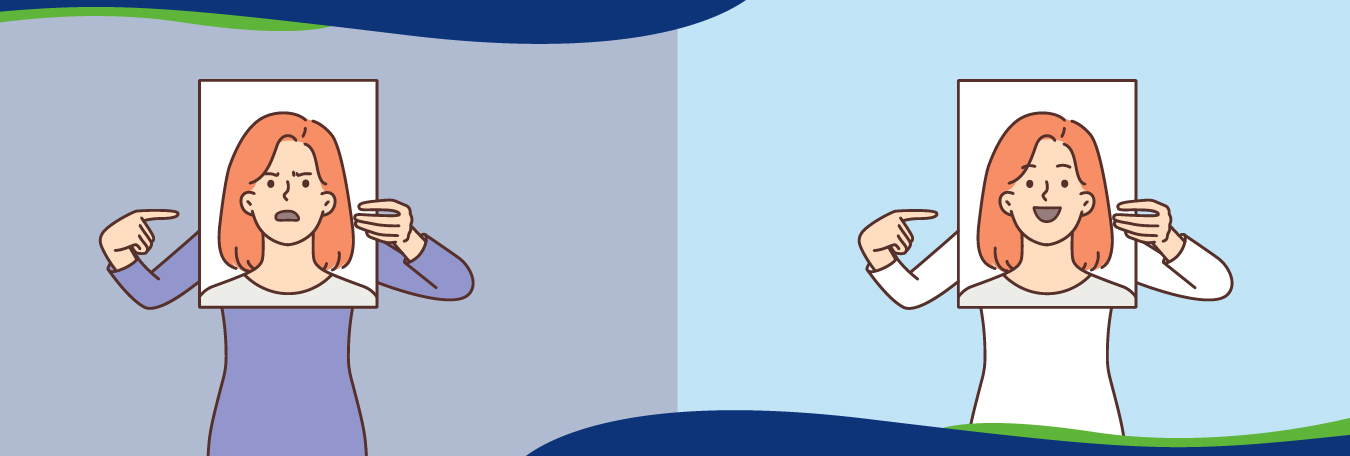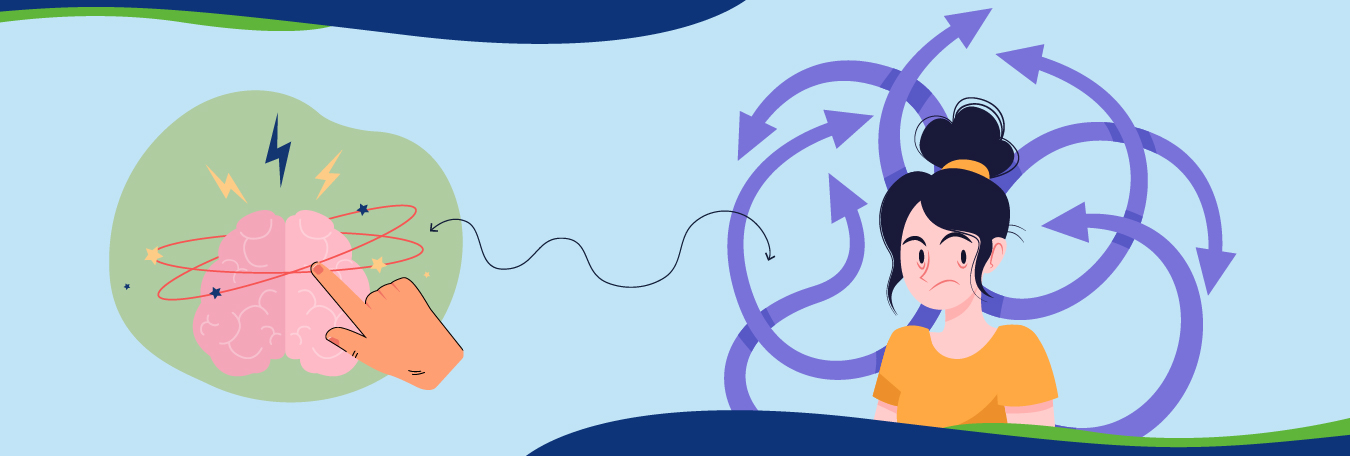Sleep crying is supposed to be very scary for some people. You wake up in the morning expecting to rest and rejuvenate your body, and discover that you had cried during your sleep and depression can’t get out of bed. Was it just from a nightmare, why do I get depressed at night, or maybe it’s some form of depression?
In this blog, we have discussed sleeping a lot is a sign of depression, the relationship between mood disorders and sleep problems, do depressed people sleep a lot, how to get out of bed when depressed, and what you should do if you are a depressed person who is sleeping all day.
The Association of Sleep And Emotional Health
Sleep and emotion are connected. Sleep is not only the rest for our body but also when the mind is conditioned for emotions, memory, and managing stressors of the day. If you are a sound sleeper but start crying in your sleep, there could be an emotional problem.
Sleep is impacted by depression, anxiety, and other mental disorders. Sleep onset, sleep maintenance, or nightmares are some of the issues that are accessible in people who have emotional disturbances. If a person makes a sound of weeping at night, it means that at some point, they unconsciously go through emotions and situations they have not solved yet.
Read More: Will Depression Make You Tired?
Crying In Sleep: The Science Behind It
It may occur during the REM (rapid eye movement) stage, in which we are said to be dreaming. REM stands for Rapid Eye Movement, and during this phase of the cycle, brain activity increases, and dreaming may be observed. Such dreams may cause crying or other associated body reactions such as sweating or a fast heartbeat.

Stress and mental health conditions such as depression make the dreamer’s content sub-conscious carry a reflection of their stresses. If a person is depressed or stressed or the like, they might cry in their sleep.
However, crying in sleep is not strictly related to depression. Many people have many fearful dreams for many reasons, such as strain, loss of a loved one, or hormonal changes. Nevertheless, if sleep crying occurs often, you feel too depressed to get out of bed, and other signs of depression are observed, it is high time to think That it is not only sleep crying.
Some Common Signs
Depression is a multifactorial mental disorder and usually presents with symptoms other than sleep disturbances.
Here are some signs that crying in your sleep may be related to depression:
- Persistent Feelings of Sadness: Depression mainly results in the state of being sad or “down” for an extended amount of time with no cause. If you wake up crying and have been unhappy for weeks or months, then you might have depression.
- Changes in Sleep Patterns: Depression makes you lose your sleep, or you will have some changes in your sleep pattern. There are difficulties in getting to sleep or to ‘sleep through’ the night, or, on the contrary, oversleeping at night. Night crying may be an aspect of these other more extensive sleeping disorders associated with depression.
- Loss of Interest in Daily Activities: Depression is a common disease that causes people to lose their sense of pleasure from activities that used to be fun. If you wake up crying, feel like you don’t want to talk to friends anymore, or don’t want to do things that used to interest you, you could be depressed.
- Fatigue and Low Energy: One of the symptoms associated with depression is fatigue when you wake up too exhausted to go to work even after a full night’s sleep. You may wake up, especially after sleeping and crying, and feel like you have lost energy. Then, all of those could be signs of depression.
- Emotional Numbness or Hopelessness: Night crying probably occurs when your mind releases emotions you had locked up throughout the day. If you have been emotionally detached or thought there’s no point living, such emotions might only be realized in a dream state.
- Nightmares or Disturbing Dreams: That is why it is common for people with depression to have frequent nightmares or nightmares of an unpleasant nature. These dreams may result in actual crying as your brain processes emotions or information that is painful to the person.
Read More: Is There A Link Between Headaches and Depression?
Emotional Dreams vs Sleep Crying Induced by Depression
One needs to distinguish the crying in sleep that results from emotional dreams and crying due to other forms of emotions, such as depression. Everyone experiences an emotional dream at some point. Though they might occur due to stress, anxiety, or recent changes in one’s life, they are not always a result of depression.
But, if you are waking up with tears most mornings, or over some days and weeks, and especially if you are having other symptoms of depression like loss of energy, apathy, and changes in sleeping, then it’s worthwhile to suspect that depression may be the culprit.
Why Do You Wake Up Crying?
If crying in your sleep is becoming a regular occurrence, several potential factors are at play, many of which may overlap with the symptoms of depression. Stress can change your feelings and may even affect your sleep. Several factors lead to sleep crying, including stress, which may give people emotional and vivid dreams.
- Grief or Loss: If you’ve lost someone dear or a relationship that was important to you, they may still haunt your sleep, and you wake up crying. It is most notably expressed that grief can have a profound impact on sleep, and it may result in disturbed or emotional sleep.
- Trauma: People who had traumatic event experiences like abuse, accident, or seeing something awful can thus cry to sleep since their mind is trying to process what it sees. Sleep disorders in PTSD include nightmares, and these are likely to cause the affected individuals to cry.
- Hormonal Changes: Hormones also adjust mood. Vulnerable situations characterized by hormonal changes, such as pregnancy, menstruation, or menopause, are likely to cause mood swings and, therefore, cause a person to cry during sleep.
- Mental Health Conditions: Other disorders such as anxiety, depression, and other mood disorders make a person cry in their sleep. It is easy to understand that when some psychological processes influence human emotions without the person’s conscious control, they can affect the night’s sleep.
What Should You Do if You Cry in Your Sleep?
If you often wake up crying, the incident should not be ignored if other manifestations of emotional worsening are also present. Here are some steps you can take:
- Track Your Symptoms: Possible suggested tasks include writing a log that would indicate instances when the person wakes up crying and whether such experiences are related to crying throughout the day due to depression, psychosis, stress, or emotional detachment. Record down any constantly recurring dream and the feelings it will evoke.
- Talk to Someone: Telling a friend, family member, or counselor your story is a great way to release feelings. If you are sleeping, crying, and still feeling overwhelmed, consult a therapist if you need motivation to get out of bed depression. Additionally, he will help you note whether it is due to depression or another mental illness.
- Practice Good Sleep Hygiene: Several measures could be taken to enhance the quality of your sleep: adopt a regular bedtime, develop a reasonable bedtime, and awaken from stress-free conditions. They have also found that decreasing time spent before computers and television and eliminating stimulants such as caffeine intake in the evening can help improve sleep.
- Seek Professional Help: If you believe that it is depression or any other condition to blame for making you cry during your sleep, you should see a doctor. A therapist or counselor can be of a lot of help if one is to help you discover the root cause of the problem and how to deal with it.
Read More: Symptoms and Causes of Depression – How to Treat Them?
Conclusion!
Nighttime crying is a problem, and the primary cause should be investigated as it is usually a manifestation of an emotional or even a mental condition. It can originate from stress, grief, trauma or hormonal change. Still, if you worry about sleep crying, it is important to consult professional help if there are other signs of depres sion associated. Of course, learning how to control sleep crying is possible, but more critically, finding a way to treat the causes that will enhance an individual’s health is essential. If you are experiencing crying in your sleep and worried if it is a sign of depression, then now is the best time for you to get in touch with the Inland Empire Behavioral Group and attain benefits of telehealth services today!




